Responsible AI Regulation in Europe: How to Ensure the Uptake of AI for SMEs
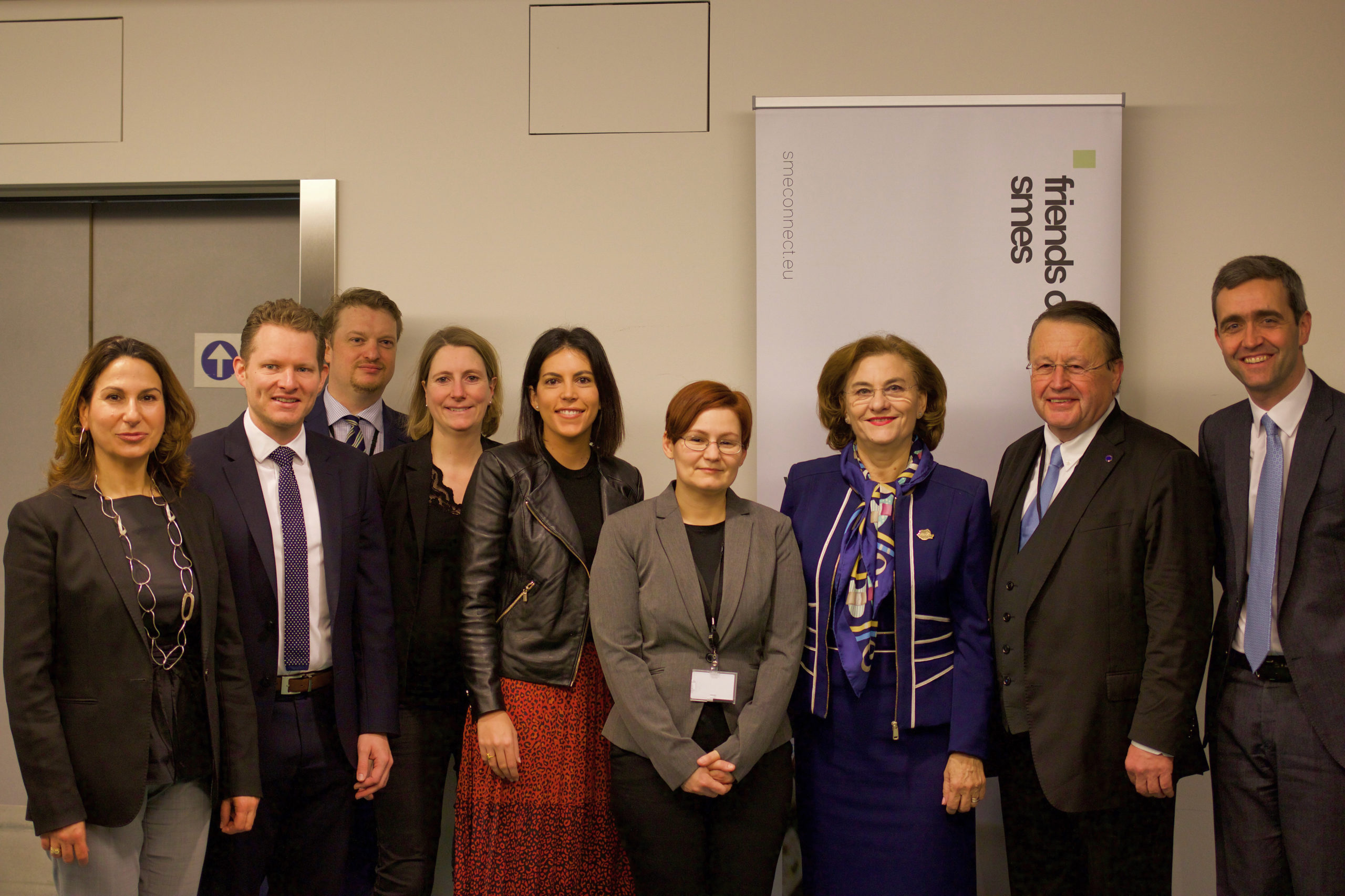
On February 4 2020 SME Connect hosted a Working Breakfast on”Responsible AI Regulation in Europe: How to Ensure the Uptake of AI for SMEs” As SMEs play the most important role in Europe’s economy and society, their successfl uptake of AI is crucial for future prosperity. SME-friendly regulation is crucial. With the right regulatory framework, European SME will be at the forefront of this groundbreaking innovation.
To join us in this conversation were Maria Grapini MEP, Vice-Chair of IMCO; Adriana Maldonado Lopez MEP (IMCO); Lucilla Sioli, Director for Artificial Intelligence and Digital Industry, DG CONNECT; Dana Eleftheriadou, Head of Advanced Technologies Team, DG GROW; Kathrin Watson, Head of European Affairs Office with Bosch; Karina Stan, Director of EU Policy and Heat of Brussels Office at the Developers Alliance; Daniel Kern, Senior Manager of Digitalisation and Innovation with Federation of German Industries (BDI) and Johannes Nitschke, Director, EU Government Affairs with Siemens.

We used to say Europe is lagging behind in the AI race but it’s not.
Lucilla Sioli mentioned the upcoming plan of the European Commission invest in digital innovation hubs that will help SMEs to go through the digital transformation with the support of the Digital Europe Programme backed with 900 million euros budget allocated for the purpose.
Dana Eleftheriadou warns against assuming Europe is losing the AI race. European firms comprise 25% AI players, the highest rate globally following the US (28%). AI promises great economic potential for SMEs by 2030, but acting now is important to ensure successful uptake.
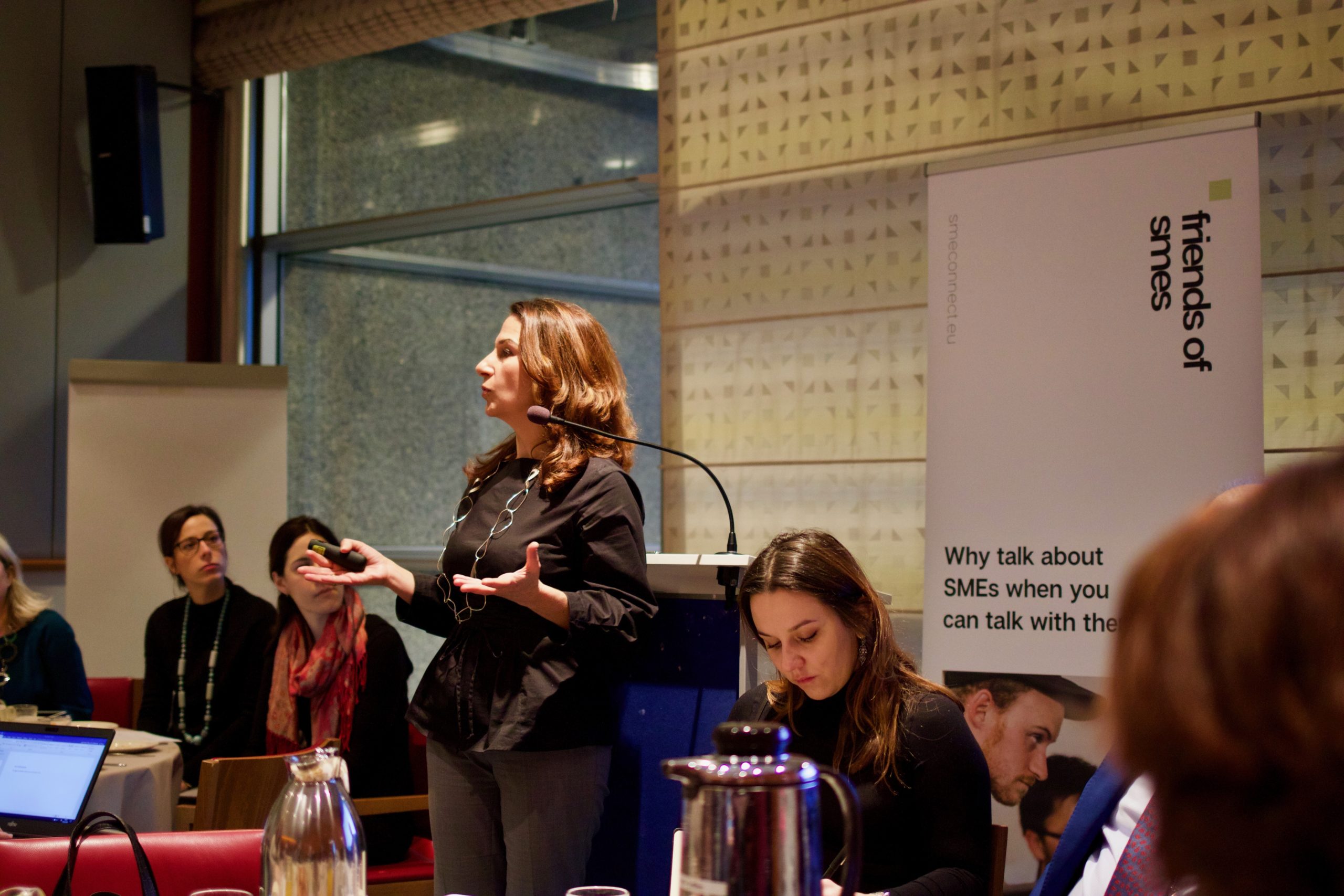
We have collected the major takeaways of Lucilla Sioli’s and Dana Eleftheriadou’s presentation in a short statement video which we invite you to watch.
Any European AI strategy needs to take into consideration the need of start-ups and SMEs, stated Dr Paul Rübig, President of SME Connect. With affordable access to high performance computing and cloud solutions, they would be overcome structural obstacles such as the lack of infrastructure. This, coupled with vocational training and additional formation for SMEs, will enable SMEs to take advantage of technological innovations in a way that makes sense for their business model and not is held back.
Finding a balance to not overregulate.
Kathrin Watson, Head of European Affairs Office of Bosch believes that one of Europe’s main strength is combining the internet of things with industrial processes.
Often the topic of AI is discussed from the perspectives of the large foreign IT companies that generate their revenues through data-based services. Meanwhile European share here is production of complex products, analysis of products and machine data and creation of the ecosystems made of SMEs, industry and science.
Bosch is the founder of its own AI centre in 2017 that spread globally and is part of the Bosch cyber valley. The vision of Bosch is to equip all their products with AI by 2025 in three sectors of where Bosch is mainly active in – service, mobility and industry. The strategy of some IT companies is having its AI based on recreating the models of human behaviours, such as purchasing behaviours for example, while Bosch aims at using AI to improve technology.
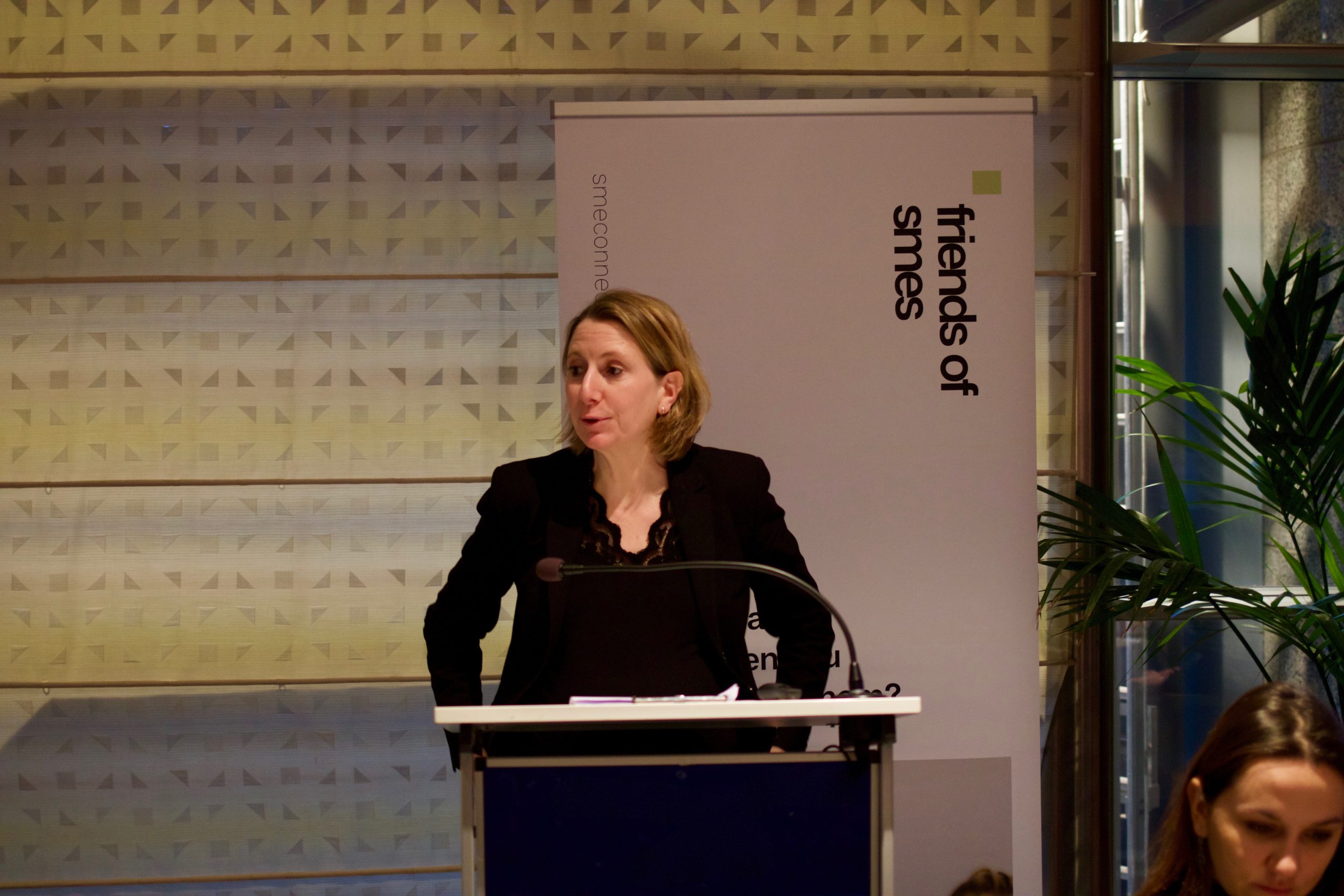
Karina Stan, Director of EU Policy and Head of Brussels office, Developers Alliance that advocates for software developers and the companies that depend on them, urged decisionmakers to abstain from political protectionism impulses and focus on solutions securing stifling innovation. European SME tissue hosts both the traditional SMEs which are confronted with the digital transformation as well as startups and scaleups that are so-called digital SMEs.
It is very important to secure an interconnected digital economy that is not stopped by physical and political borders
In her speech Karina Stan explored connected manufacturing as an example that represents opportunities for SMEs to enter the market, to grow and contribute to the IoT development.“One of the benefits of online platforms, – she says -“ is that they provide access to machine learning tools and data. One of such publicly available tools allows searching withing 25 million data sets. Traditional and non-digital SMEs are the main beneficiaries of such tools effective to reach new customers and expanding markets with limited efforts and costs.”
EU to ensure a coherent approach to avoid fragmentation between the single market must be careful to not disrupt the free flow of data and the economic interconnections of global level. A flexible, principle-based, future proof framework and most importantly – technologically neutral is the solution that will facilitate the uptake the AI technology for European businesses. When it comes to restrictions, they must be focused on using AI tech in situations when public interest requires special attention.
“We know that the EU has a natural tendency to set up additional layers of regulation and administrative burden. The narrow approach limiting the use of data sets in developing AI solutions will raise the risk of biases and impact the quality of the final products” – concluded Karina Stan.
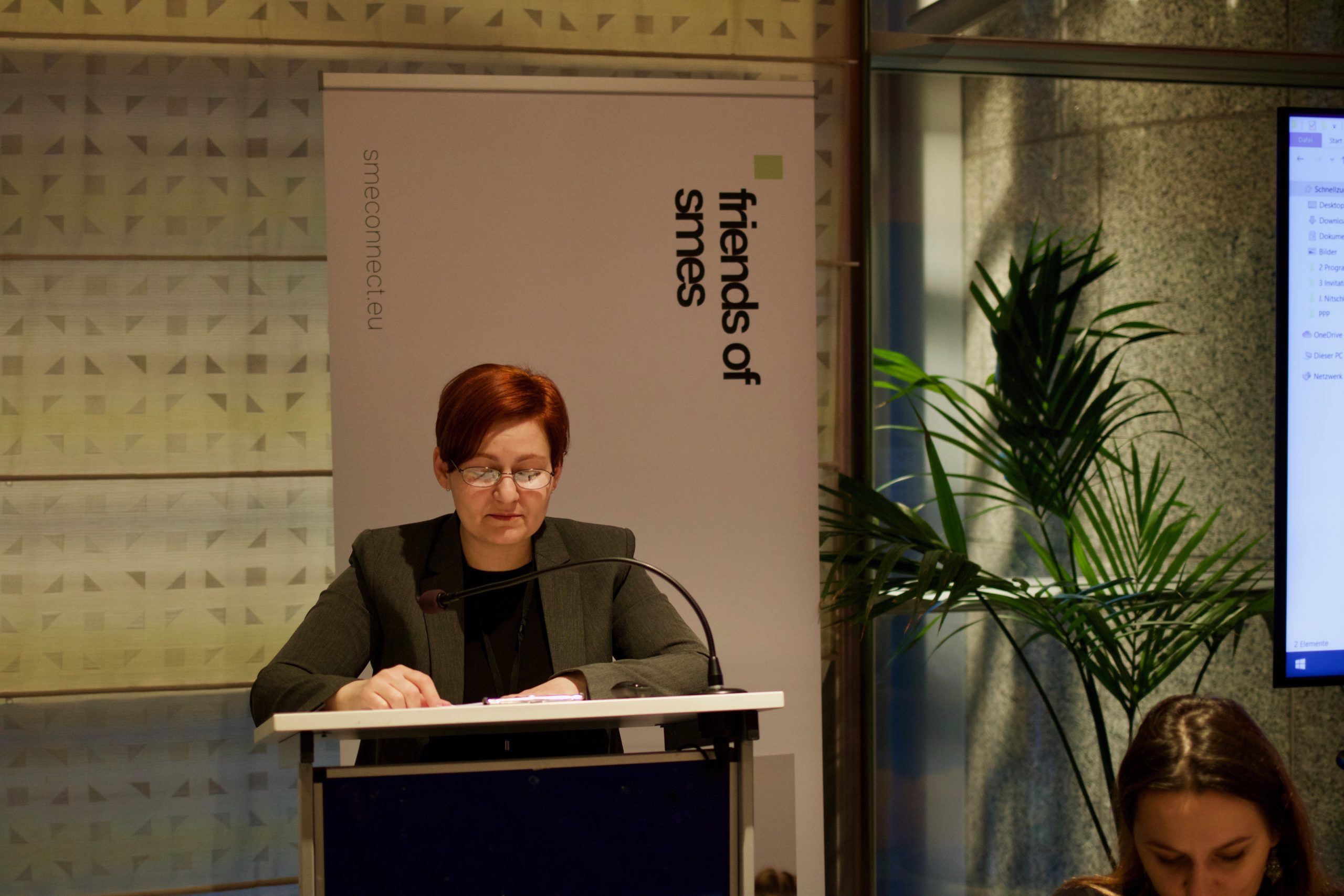
Daniel Kern, Senior Manager of Digitalisation and Innovation, BDI, an organisation advocating for German manufacturers, is opposite to calling on a horizontal regulation on AI in Europe.
“We need to regulate smartly, not rapidly. We are of the opinion when making a law it has to serve a purpose, there has to be a gap somewhere.. We have so far not seen this gap”
“We must keep in mind the legislation and regulation that we decide on today is framing developments and economic changes for years to come.” – he adds. In Germany machinebuilding and ICT are SME-driven industries. According to BDI, only 15% of SMEs are AI active users, which means that 85% are not. They barely employ AI stuff for different reasons and that’s where there is a need to increase the ability of SMEs to cooperate with IT service companies and to link them up with the relevant partners externally.
BDI is not encouraging EU decision makers copying Chinese or Americans regulatory frameworks. A European Research Road Map driven by the European Commission in cooperation with the Member States would make a diference. It would bring research and companies closer and increase the know-hows as well as retain the research talent on the continent.
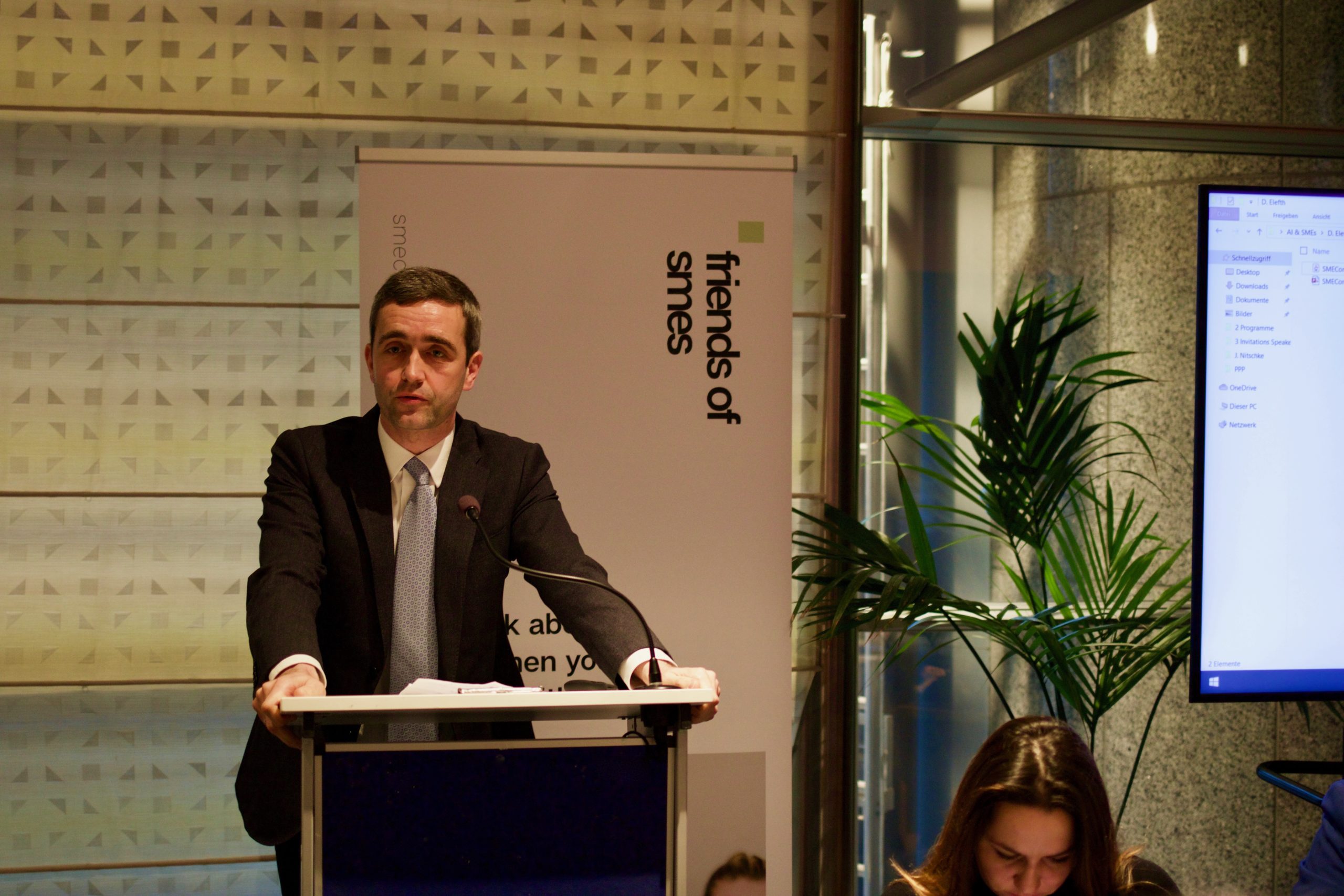
Johannes Nitschke, Head of EU Government Affairs with Siemens, further presented the view of industrial players. Using the United Nations’ Sustainable Development Goals as priority objectives, Artificial Intelligence with its industrial applications can effectively “solve real-world problems”. Starting from the energy sector, to mobility, to health, AI can change the world through small, actionable steps.
To unlock the potential of this technology, however, it is necessary to create a future-oriented Europe with an opportunity mindset through cooperation and co-creation, that regards AI as a powerful tool to enable change. Changing the public opinion and reskilling the workforce is imperative to ensure AI adoption by the society at large. These objectives can only be achieved through target policies that promote the development of an AI-ready talent pool, investments in infrastructure, and greater data availability. According to DG CONNECT Lucilla Sioli, thanks to a proposed € 900 million, digital innovation hubs can act as the human-centric facilitators of AI uptake for SMEs.
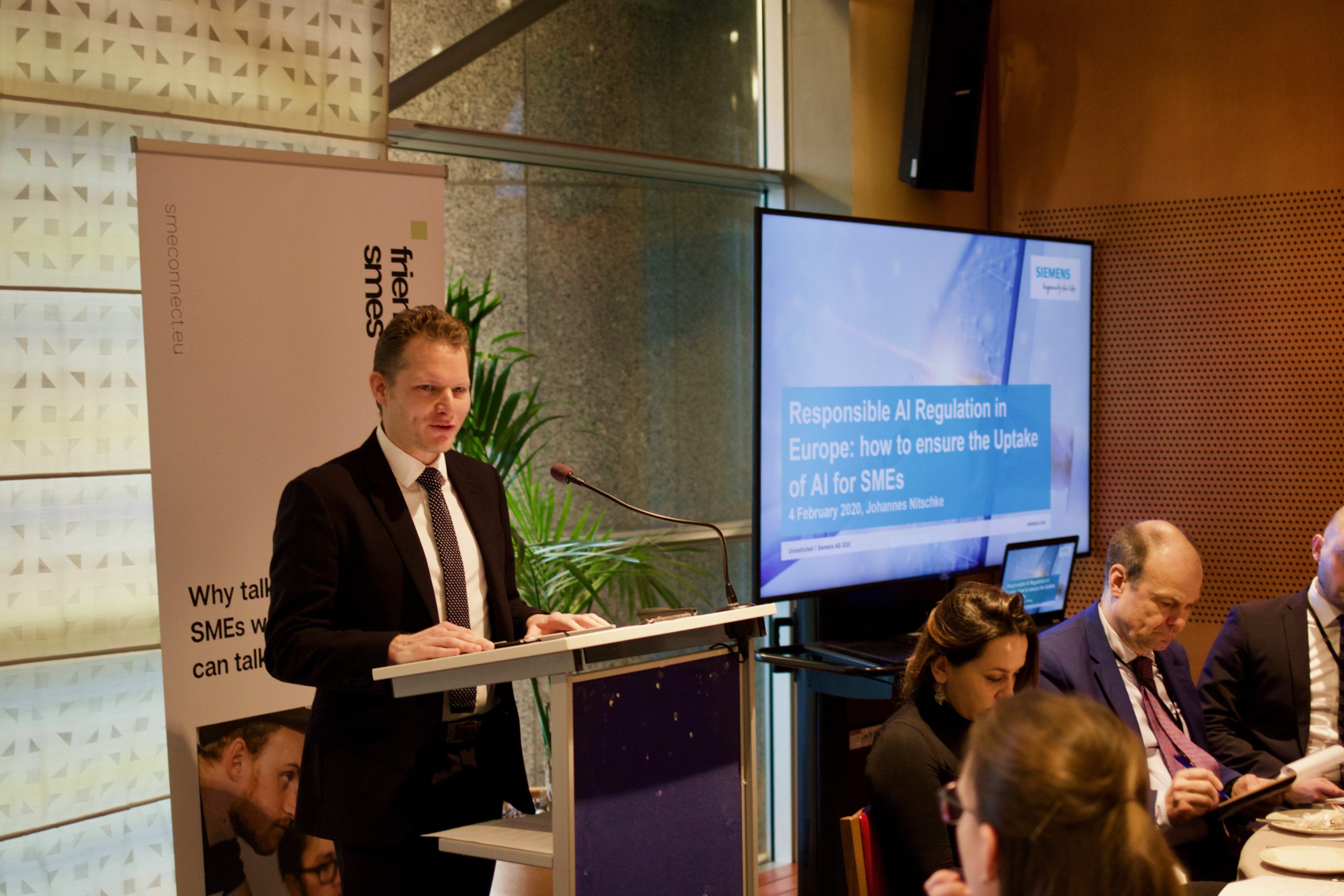
“We need to change the public perception of AI. It’s not only the future, it’s already the present.”
MEP Adriana Maldonado Lopez remarked, emphasizing once again the importance of AI for European competitiveness in the global economy.
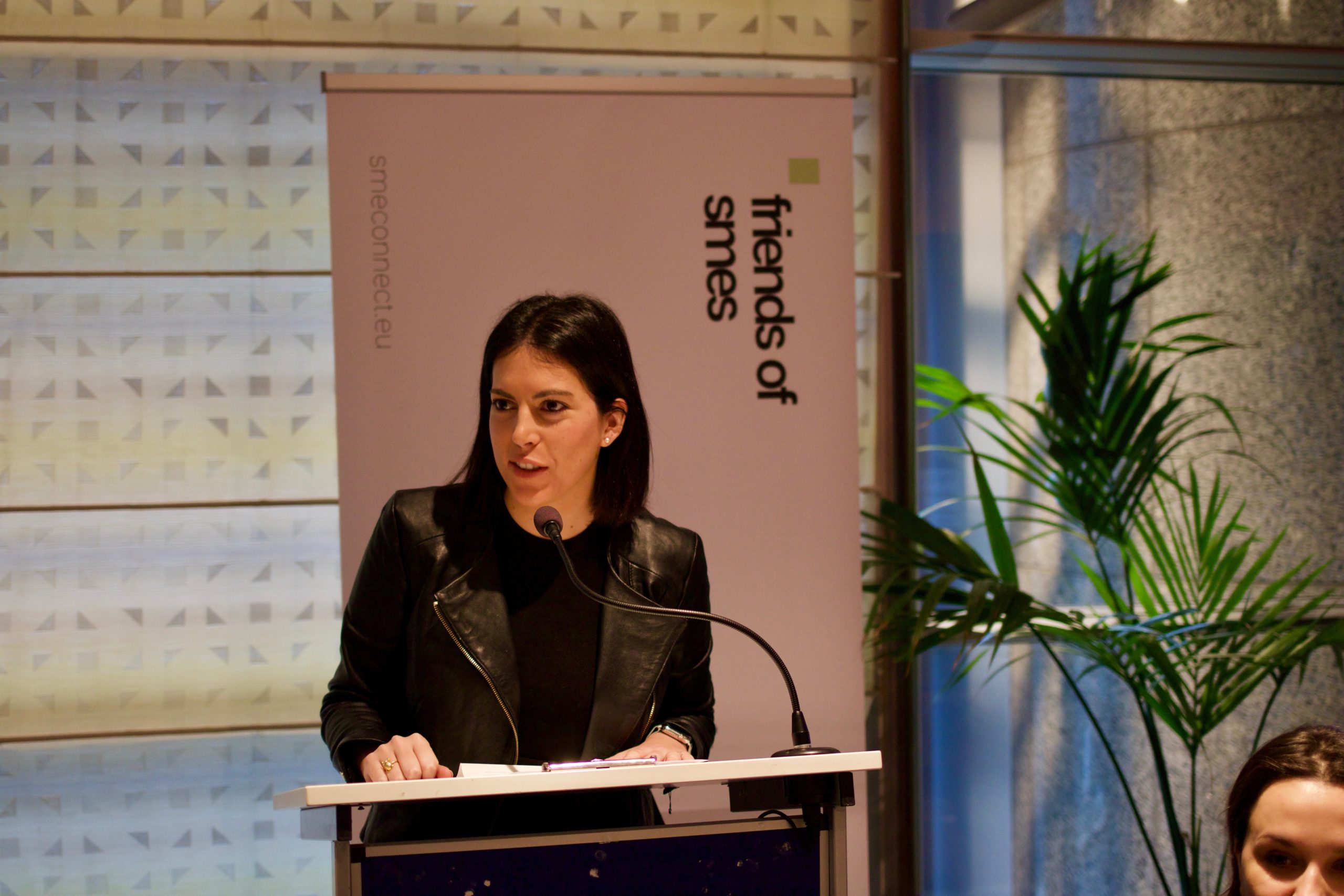
For more photos of this event please visit our profile on flickr.com